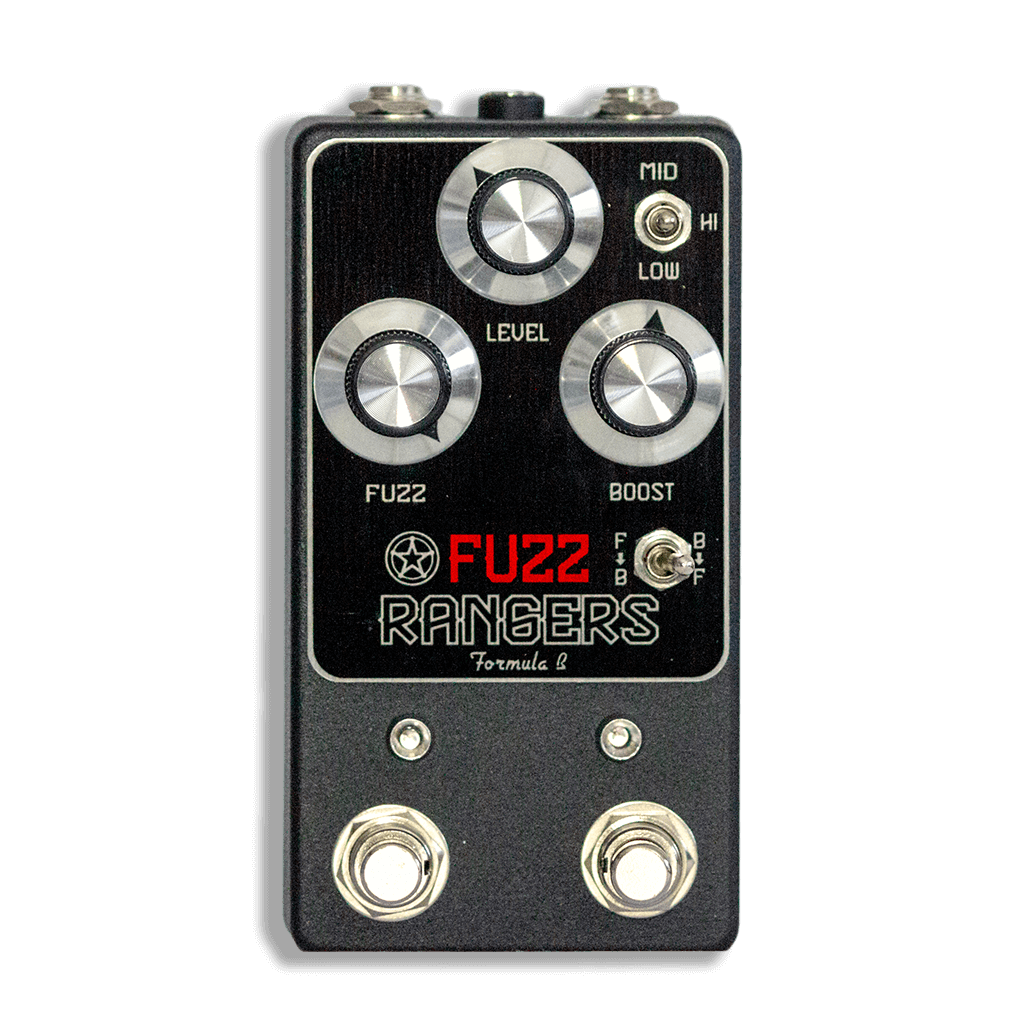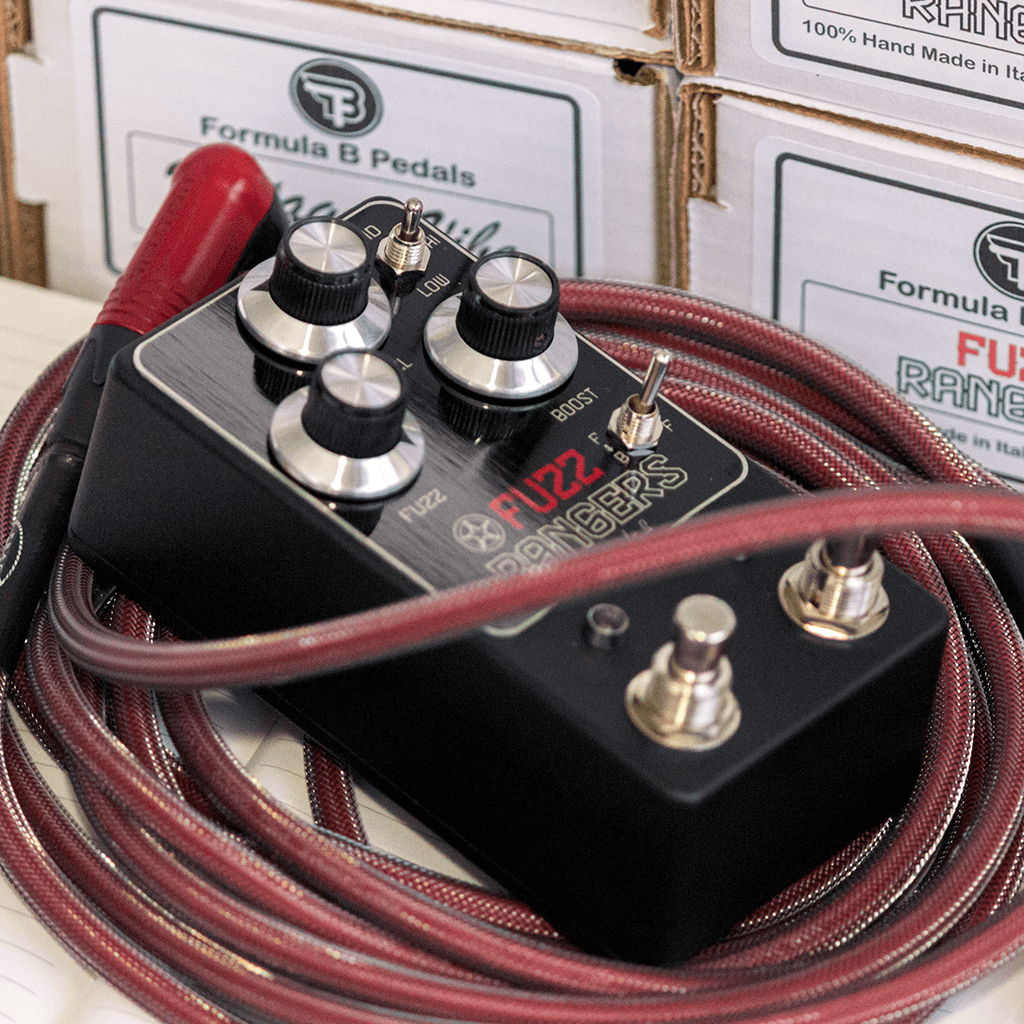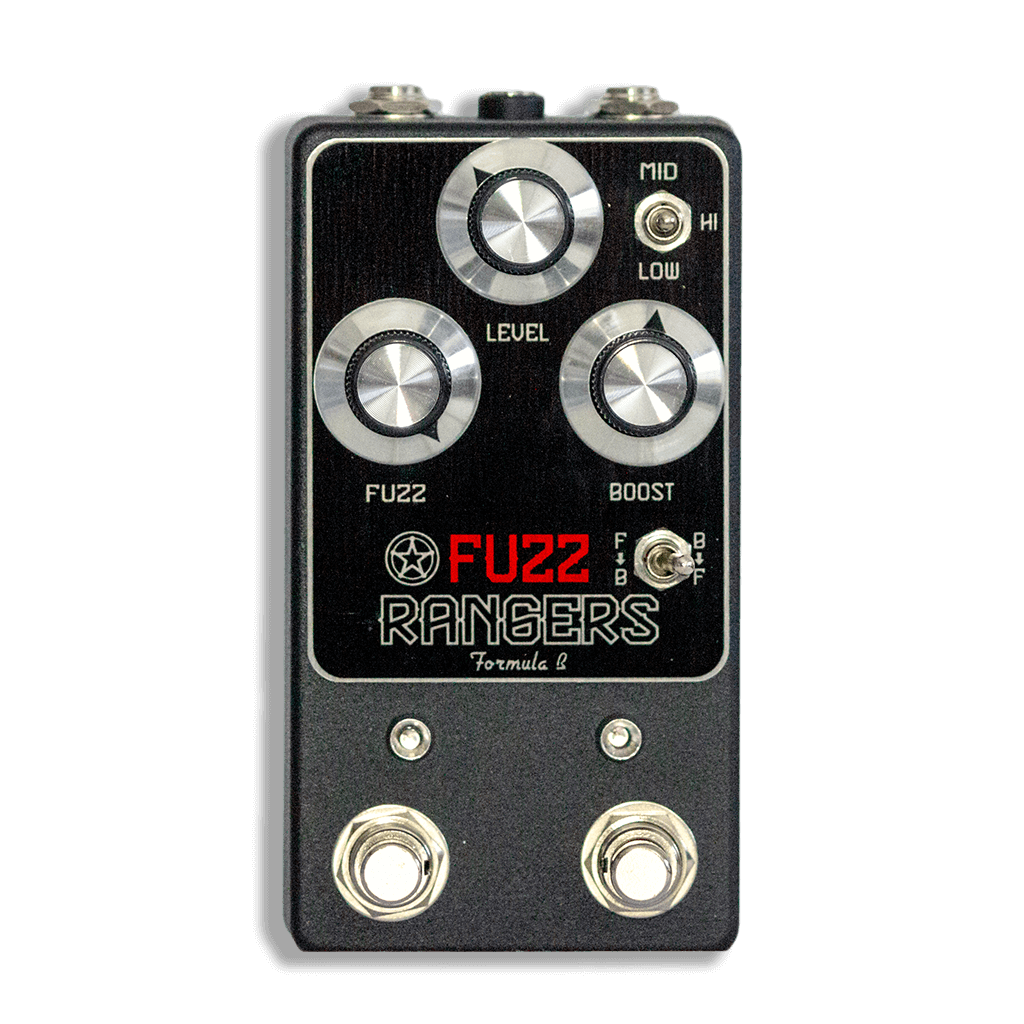


FORMULA B Fuzz Rangers
One pedal, 2 legends...
✓ In stock
Order before 9pm UK time for next-day dispatch!
✓ Free UK delivery!
Royal Mail 48-hour shipping as standard.
✓ 30-day hassle-free returns
Deliveries
SHIPPING TO THE USA – The Royal Mail has created a new PDDP (Postal Delivery Duties Paid) service, which will calculate exact costs at the moment we book your shipping. While we are happy to absorb some of the costs, if the cost of the pre-paid duty is significantly more than what you have paid when placing your order, we will be in touch to request the balance is covered by you.
If in doubt, get in touch and we can give you an accurate quote in advance.
Did you know?
We offer free 48-hour tracked UK delivery on all orders over £150! Order before 9pm for next-working-day dispatch.
We offer 30-day hassle-free returns so you can pick the item you want safe in the knowledge that if it's not for you, we'll take it back and refund your order.
International deliveries are subject to additional import duties and VAT at your local rate. These charges are payable to the courier at time of delivery. Calculate how much you will need to pay here.
Please note that some orders may take longer to be processed before shipping during the busiest periods of the year.
Returns policy
Customers hold the right to return a product for a full refund if I am notified within 30 days of delivery.
If a product is delivered in a defective or damaged condition, please contact me immediately with details of your order.
To be eligible for a return, the item must be in the same condition
that you received it. It must also be in the original packaging.
Please note, the cost of return delivery is to be paid by the customer. This will be reimbursed if the item is shown to be faulty.
To complete a return, I require a receipt or proof of purchase. Please do not send any items back to the manufacturer, and please do not send any items to me without contacting me first.
Once I have confirmed that I will process your return, please send the item to:
Boost Guitar Pedals (returns)
84 Wolf Lane
Windsor
Berkshire
SL4 4YZ
United Kingdom
Replacements and refunds
My first course of action for faulty items is to replace them like-for-like. If this is not possible, a full refund will be considered as an alternative.
If returned within the 30-day period, your refund will be processed and a credit will be applied to your credit card or original method of payment.
Shipping
The customer is responsible for paying return shipping costs. Shipping costs are non-refundable unless a product is proven to be damaged or faulty upon delivery.
It is recommended that items should be returned using a trackable shipping service in case the item goes missing en route.
About the FORMULA B Fuzz Rangers
The Formula B Fuzz Rangers takes two iconic circuits and encloses them in a beautifully finished chassis with vintage-style controls.
New for 2024, the Fuzz Rangers now includes top-mounted jacks and simultaneous channel off using just one footswitch.
With the option to run the Fuzz or Boost independently, it's an incredibly flexible pedal for your pedalboard, but where it gets interesting is that there's a toggle to set the direction of the signal. You can choose whether to run the Boost into the Fuzz, or vice-versa. The results differ dramatically...
Running the Boost into the Fuzz saturates the input of the Fuzz Face circuit and gets you a rich, warm, super-fuzzy character.
Running the Fuzz into the Boost gets you a clearer tone with plenty of volume to push your amp.
More than simply for fans of Jimi Hendrix and Stevie Ray Vaughan, this pedal will serve you well with its vintage vibe and tonal flexibility.
Fuzz Rangers Fuzz Circuit
The Fuzz circuit is based on the silicon Fuzz Face, using a pair of NOS military-spec BC108 transistors and carbon-layer resistors. It sounds great on its own, and reacts really nicely to your guitar's volume pot - as genuine Fuzz Faces do.
Fuzz Rangers Boost Circuit
The Boost circuit is based on the Dallas Rangemaster Treble Booster, with silicon BC549 transistors to reduce compatibility problems (polarity, power etc) with the Fuzz circuit.
Uniquely, there's a toggle switch to adjust the Boost frequency cut, making it more flexible than a traditional Rangemaster:
Low Gives you a full-frequency response including the bass.
Mid Focuses on the low-mid frequencies for a vintage valve-like frequency response.
Hi Focuses on the upper frequencies for a lovely glassy sound.
Simultaneous Channel Off
New for 2024, the Fuzz Rangers now allows you to power off both channels of the pedal simultaneously by using only one footswitch - no more tap dancing!
Press and hold the footswitch on the Fuzz side for a few seconds until the status LED starts blinking. You can now use either footswitch to power off both channels together. To return to the standard, independent mode, simply repeat this process.
Fuzz Rangers Demos
Fuzz Rangers Features
- Dual-channel pedal with independent Fuzz and Boost circuits.
- NOS BC108 transistors and carbon-layer resistors on the Fuzz side.
- Silicon-based Rangemaster circuit on the Boost side for greater compatibility with the Fuzz.
- New for 2024: top-mounted jacks and simultaneous channel off using just one footswitch.
- Effects Order toggle switch enables you to run the Fuzz into the Boost, or the Boost into the Fuzz when both channels are activated.
- EQ toggle allows you to emphasise Low, Mid or High frequencies on the Boost side.
- Handmade in Todi, Italy
- Fuzz, Level, Boost, EQ toggle & Effects Order toggle controls
- True Bypass
- Power: 9V DC power supply, centre-negative (not included)
- Current draw: 6mA







